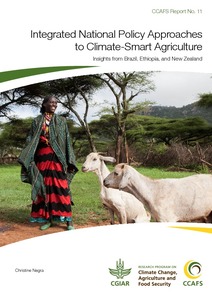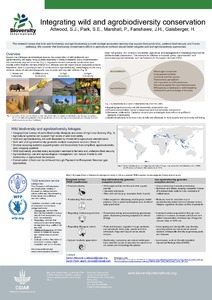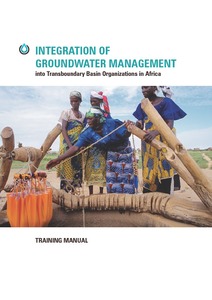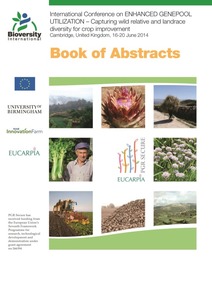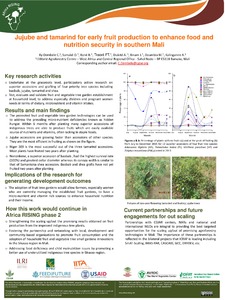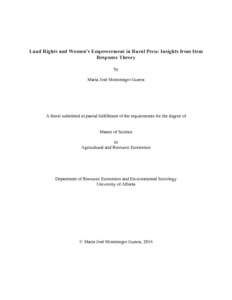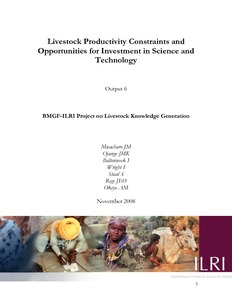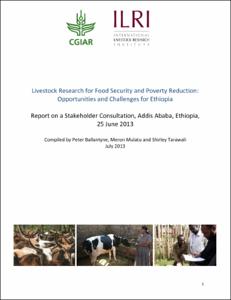Integrated National Policy Approaches to Climate-Smart Agriculture. Insights from Brazil, Ethiopia, and New Zealand
In the absence of clear international policy signals and strong global agreements on climate change and sustainable agriculture, countries are moving forward to test sustainability strategies through innovative policies and financing programmes. This paper explores how three countries – Brazil, Ethiopia, and New Zealand – are using integrated policy approaches to address the linked challenges of climate change, unsustainable agriculture, and food insecurity.
Integrating wild and agrobiodiversity conservation
This research shows that both wild biodiversity and agrobiodiversity provide multiple ecosystem services that support food production, underpin food security and human wellbeing. We consider that biodiversity conservation efforts in agricultural contexts should better integrate wild and agrobiodiversity approaches
Integration of groundwater management:into transboundary basin organizations in Africa
International Conference Enhanced Genepool Utilization - Capturing wild relative and landrace diversity for crop improvement, Cambridge, United Kingdom, 16-20 June 2014. Book of Abstracts
This conference presents the culmination of the PGR Secure project (www.pgrsecure.org) – a collaborative project involving eleven partners funded under the EU Seventh Framework Programme, THEME KBBE.2010.1.1-03, 'Characterization of biodiversity resources for wild crop relatives to improve crops by breeding', Grant agreement no. 266394. It is jointly organized with the section on genetic resources of the European Association for Research on Plant Breeding (EUCARPIA).
Irrigation infrastructure for sustainable and improved agricultural productivity. Topic Guide
Keynote address
Is reliable water access the solution to undernutrition? A review of the potential of irrigation to solve nutrition and gender gaps in Africa South of the Sahara
Interventions aimed at increasing water availability for livelihood and domestic activities have great potential to improve various determinants of undernutrition, such as the quantity and diversity of foods consumed within the household, income generation, and women’s empowerment. However, current evidence on the topic is diluted across many different publications. This paper aims to connect the dots and review the literature available on the linkages between irrigation and food security, improved nutrition, and health.
Land Rights and Women's Empowerment in Rural Peru: Insights from Item Response Theory
Women’s land rights are increasingly advocated as an empowerment tool to spur development outcomes. However, empirical evidence of this relationship is limited. In this study we use data from peasant communities in rural Peru to explore the effect of the intra-household allocation of inherited land on women’s empowerment. Empowerment is modeled as a latent variable measured by different influence indicators using a Generalized Structural Equation approach.


